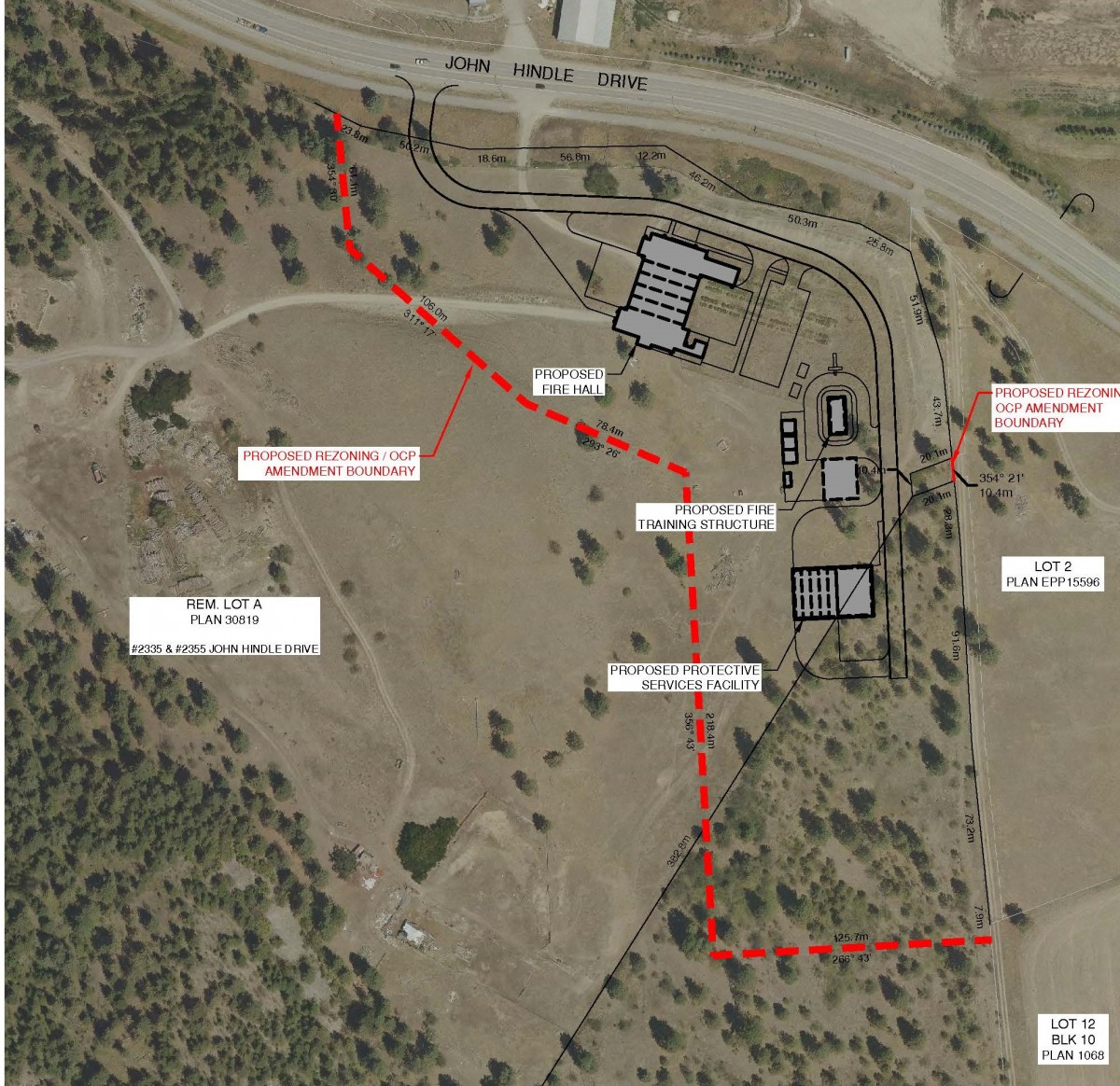Glenmore Protective Services Campus
The City of Kelowna is advancing the construction of a new Fire Station and emergency services facilities to enhance emergency response capabilities and ensure the safety and well-being of our growing community.
The Glenmore Protective Services Campus (GPSC) represents a transformative investment in the safety and resilience of North Glenmore and the broader Kelowna region. Originally conceived as the replacement for the aging Glenmore Fire Hall No. 5, the project has evolved into a multi-agency, all-inclusive protective services and training campus.
The new facility addresses critical operational needs, meets modern safety standards, and includes:
- Fire Station: Approximately 25,000 square-foot housing four double-length apparatus bays, training facility, accommodation for full-time Fire Department teams, dispatch rooms, office, rest room, training room, change rooms, kitchen, public meeting room, hose tower, and relevant parking.
Also being considering is the proposed:
- Central Okanagan Search & Rescue (COSAR) facility: Approximately 9,500 sqft facility housing five apparatus bays, radio room, equipment storage, office, and wash/change rooms.

The Glenmore site is ideally located near the city’s northern gateway, a growing residential area that includes the Airport, UBCO, landfill and commercial and industrial business areas.
The new Fire Station will reduce response times for emergency services. The site was carefully considered to minimize disruption to the surrounding area while providing sufficient space for the facility's operational needs.
- Support Hub: The GPSC will serve as a key logistical and operational base for large emergency events, wildfire response in the Central Okanagan.
- Public Safety Integration: Co-locating key agencies fosters better collaboration, resource-sharing, and response coordination during multi-agency incidents.
- Regional Resilience: The GPSC strengthens emergency service coverage for Kelowna’s rapidly growing North Glenmore area and improves regional service levels across the Okanagan.
- Facility Modernization: The GPSC allows the City to meet contemporary building and post-disaster standards while returning the existing Station 5 land to the ALR, honoring commitments made to the Agricultural Land Commission.
- Training and Recruitment: On-site training facilities support ongoing firefighter training and recruitment initiatives, providing hands-on learning environments that will benefit multiple departments and agencies
Design involves sustainable practices, including reducing operable carbon and landscaping that integrates with the local environment.
This significant investment will ensure that our community is resilient and ready for emergencies. The Fire Station and Training facility is budgeted at $39 million, funded through borrowing, reserves and taxation.
In 2023, City Council approved an ongoing one per cent Public Safety Levy to provide more stable and predictable funding for additional police, fire and bylaw resources. The Public Safety Levy was approved ongoing and can be deployed strategically to fund the areas most needed in public safety in the future. Fire Services continues to be one of the City’s largest investment areas in the general operating budget.
Working with partners makes us stronger in the face of emergencies. Since 1954 Central Okanagan Search and Rescue (COSAR) has been providing Kelowna and the surrounding area with a team of highly trained volunteers committed to helping those in need of rescue services.
The City and COSAR are working on a partnership agreement to construct a permanent COSAR facility that supports their ongoing work in first aid, high angle rope rescue, wilderness and urban ground search, helicopter rescue, and swift water rescue. The training facility will enable search and rescue teams to sharpen their skills and act fast in times of need.




